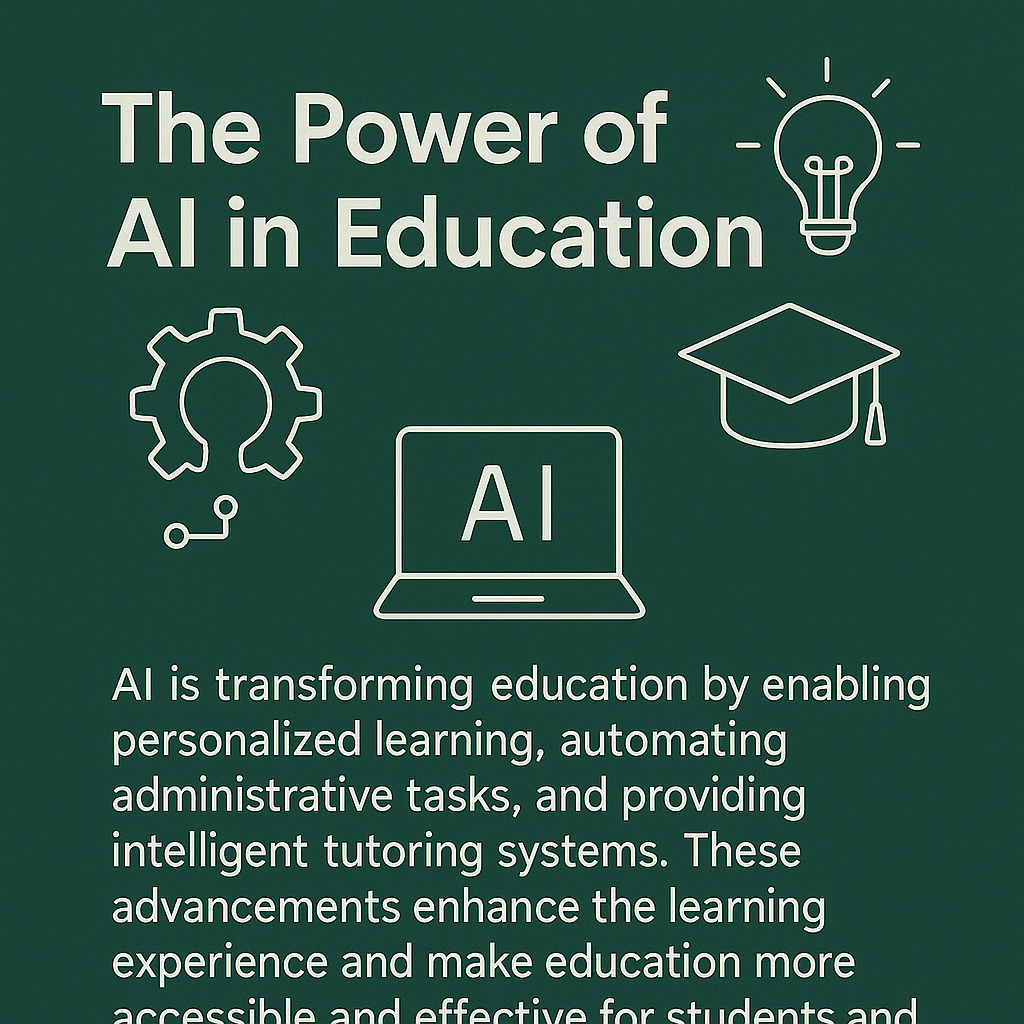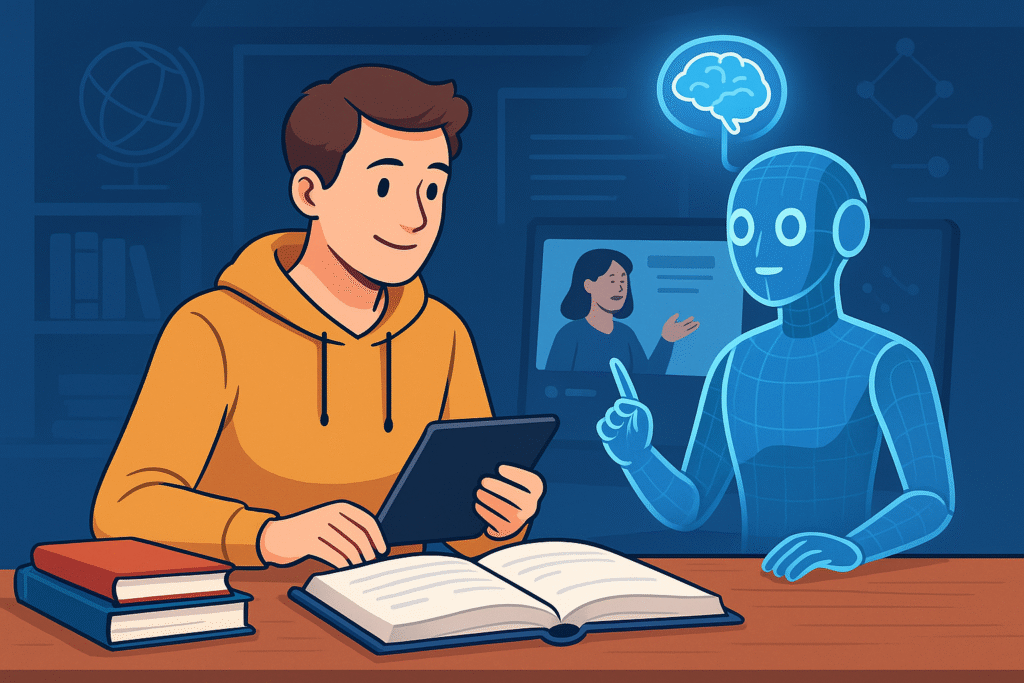In today’s fast-paced digital era, education is undergoing a profound transformation. The rise of AI tools for online education is reshaping how students learn and how educators teach, creating smarter, more personalized, and efficient learning experiences. Whether you’re a student looking to optimize your study methods or a teacher aiming to enhance classroom engagement, leveraging the right AI tools can make all the difference.
This article explores the best AI tools for online education in 2025, explaining why they matter, their benefits, how to select the perfect tools for your learning or teaching needs, and how these tools are shaping the future of digital learning.
Why Are AI Tools Essential for Online Education?
Artificial intelligence (AI) has rapidly moved from the realm of science fiction to everyday practical use, especially in education. The surge in online learning platforms — accelerated by the COVID-19 pandemic — exposed the need for more intelligent, adaptable systems. These intelligent solutions offer:
- Personalized Learning
- Instant Feedback
- Automation of Routine Tasks
- Engagement & Gamification
- Data-Driven Insights
Consequently, these features create an enriched, efficient, and accessible educational environment for learners worldwide. Importantly, AI doesn’t replace educators but augments their ability to connect, track, and engage with students in meaningful ways.
Moreover, AI tools reduce time-consuming tasks like grading and content creation, allowing teachers to focus on instruction and mentoring. As a result, schools and institutions can deliver high-quality education even with limited resources. Additionally, students benefit from round-the-clock access to tailored content and support.
Top 10 Best AI Tools for Online Education in 2025
Below is a comprehensive list of the best AI tools for online education that are making waves in classrooms and homes alike:
1. Socratic by Google – AI-Powered Study Helper
To begin with, Socratic is an intuitive AI-powered learning assistant designed to help students solve homework problems across subjects such as math, science, history, and more. Using image recognition and natural language processing (NLP), Socratic provides detailed explanations and learning resources. Additionally, it’s particularly helpful for self-paced learners who need quick support outside traditional classroom hours. Its seamless integration with Google products also makes it highly accessible.
Furthermore, students find the app easy to use, and its ability to provide instant answers encourages independent problem-solving. Because of its visual and contextual approach, Socratic appeals to both visual and verbal learners.
2. Quizlet – AI Flashcard and Learning Tool
Another top contender is Quizlet, a popular AI-driven study platform that helps students create personalized flashcards and learning sets. Its AI recommends topics to study, schedules review sessions based on spaced repetition, and adapts learning content to ensure students retain more information. Furthermore, Quizlet’s collaborative nature allows users to share study sets and learn together.
Thanks to its gamified format and social features, students stay motivated to study consistently. Also, educators can use it to assign sets, track progress, and guide students based on performance analytics.
3. Kahoot! – Game-Based AI Learning Platform
Kahoot! is a widely used game-based learning platform that incorporates AI to create engaging quizzes, surveys, and interactive lessons. Moreover, AI is used to analyze student performance and suggest questions tailored to different learning levels. It’s a favorite among teachers aiming to boost engagement and interactivity in virtual classrooms.
Not only does it turn lessons into exciting games, but it also helps teachers pinpoint where students need extra support. Additionally, it promotes teamwork and friendly competition in digital classrooms.
4. Edmodo – Social Learning with AI Support
Similarly, Edmodo acts as a social learning platform connecting students, teachers, and parents in a secure digital environment. AI in Edmodo assists in organizing classroom activities, recommending resources, and offering insights into student progress. As a result, it fosters community-based learning while keeping educators informed through data dashboards.
Besides its educational capabilities, Edmodo provides a safe space for collaboration and communication. Furthermore, parents can track student achievements, encouraging a more involved learning experience.
5. Gradescope – AI Grading Tool for Online Education
Gradescope revolutionizes grading with AI-assisted technology, helping educators quickly and accurately assess a variety of assignments, including handwritten and scanned work. The AI capabilities detect patterns in answers, enabling more consistent grading and faster feedback. Therefore, it saves teachers hours of manual grading work while maintaining accuracy.
Also, it improves transparency in grading, reducing disputes and boosting student confidence in the system. Moreover, it allows for quicker turnaround times, which is essential in fast-paced online courses.
6. Knewton by Wiley – Adaptive Learning AI Tool
Next on the list is Knewton, a sophisticated adaptive learning platform powered by AI that personalizes educational content based on each learner’s unique needs. It provides detailed analytics that help educators understand student strengths and weaknesses. Consequently, by tailoring coursework, Knewton promotes mastery-based learning rather than one-size-fits-all instruction.
Furthermore, students get a more effective learning experience as the platform adapts in real-time. Because of its insights, teachers can intervene promptly and offer customized support.
7. Century Tech – Personalized AI Platform for Education
Century Tech is an AI-powered learning platform that uses data analytics to create personalized learning journeys for students. It delivers micro-lessons and assessments adjusted in real time, enhancing understanding and retention. Notably, teachers receive actionable insights to support each student’s academic development.
With built-in nudges and reminders, Century Tech keeps learners on track. Moreover, it encourages goal-setting and self-monitoring, essential habits for online education success.
8. ChatGPT by OpenAI – AI Tutoring and Teaching Assistant
In the realm of AI tutoring, ChatGPT stands out. It is increasingly used in education as a virtual assistant. Students use it for tutoring, language practice, and brainstorming. On the other hand, teachers employ it to generate quizzes, summarize materials, and draft lesson plans. With responsible use and proper guidance, ChatGPT can significantly enhance educational productivity.
In addition, ChatGPT supports multiple languages and subjects, offering flexible help at any time. It also promotes critical thinking by encouraging students to ask and refine questions.
9. Dragon Speech Recognition – AI Tool for Accessibility in Education
This AI tool is ideal for students with disabilities or those who prefer auditory learning. Dragon allows users to dictate instead of typing, converting spoken words into written text. Moreover, it helps improve writing efficiency and accessibility in remote or hybrid learning environments.
In fact, it empowers students who struggle with traditional input methods. Also, it integrates with popular educational platforms, enhancing usability.
10. Grammarly – AI Writing Tool for Online Learning
Grammarly’s AI writing assistant is more than a grammar checker. It offers tone detection, clarity improvement, and vocabulary suggestions. It’s especially helpful for students crafting essays or professionals developing course content. Teachers can also use it to evaluate writing quality efficiently.
Moreover, Grammarly’s browser integration and real-time suggestions make it convenient for daily writing tasks. As a result, students become better writers over time.
How to Choose the Right AI Tool for Online Learning Success
For Students – Selecting the Best AI Study Tools
- Look for tools offering personalized tutoring and instant feedback.
- Prioritize apps that support your subject interests and learning style.
- Check for mobile accessibility if you learn on the go.
- Assess privacy policies to ensure your data is safe.
Additionally, consider peer reviews and trial options to test the tool’s effectiveness. Choosing a user-friendly platform can boost motivation and consistency in studying.
For Educators – Choosing AI Tools to Enhance Online Teaching
- Seek platforms that automate grading and provide detailed analytics.
- Consider tools that foster student engagement through quizzes and gamification.
- Ensure the tool integrates smoothly with your existing LMS.
- Look for tools that support content generation or lesson planning.
Moreover, opt for scalable solutions that can grow with your needs. Support and training resources are also essential for maximizing effectiveness.
For Institutions – AI Solutions for Scalable Education
- Opt for comprehensive AI solutions that cover multiple facets.
- Verify data privacy and security compliance.
- Focus on scalability and support services.
- Analyze cost-effectiveness and ROI.
Furthermore, align tool selection with institutional goals and teaching philosophies. Involving all stakeholders ensures smoother implementation.
Tips for Using AI Tools in Online Education Effectively
- Combine Multiple AI Education Tools: Use a mix of AI applications—such as assessment, tutoring, and planning tools—to cover different learning needs.
- Encourage Active AI Tool Usage: Motivate students and teachers to use AI tools regularly for best results.
- Leverage Data Insights from AI Platforms: Use analytics to monitor progress and customize instruction.
- Stay Updated on AI Education Trends: AI tools evolve quickly. Therefore, keep track of updates and new features.
- Balance Technology with Human Connection in Learning: Technology is an enabler, not a replacement. Thus, maintain human interaction to support emotional and social development.
Also, provide guidance to students on how to use AI ethically and effectively. This ensures a balanced and responsible approach.
The Future of AI in Online Education: Trends to Watch
AI’s role in education will only deepen in the coming years. Here are some trends to watch:
- Immersive Learning with AI and VR/AR: Combining AI with AR/VR will enable more engaging learning environments.
- AI-Generated Educational Content: Tools will create personalized textbooks, quizzes, and lesson summaries in real-time.
- Intelligent Tutoring Systems for Online Education: These will mimic human tutors, offering personalized guidance.
- Lifelong Learning with AI Education Platforms: AI will power platforms that support continuous education beyond traditional schooling.
- Equity in Education Through AI Tools: AI can help bridge gaps in access, especially in underserved regions.
Moreover, educators must stay flexible and open to change to fully embrace these advances.
Challenges and Ethical Issues of Using AI in Education
While AI in education offers immense potential, it also raises some concerns:
- Data Privacy in AI Learning Tools: Institutions must safeguard student data.
- Bias in AI Algorithms for Education: AI systems must be transparent and fair.
- Digital Divide and Access to AI Resources: Access to AI tools should not widen educational inequality.
- Overreliance on AI in Learning: A healthy balance must be maintained to preserve critical thinking and creativity.
Additionally, ethical use training and regulation are essential for long-term success.
Conclusion: Embracing the Best AI Tools for Online Education
The best AI tools for online education are no longer optional—they are essential for modern teaching and learning. These technologies empower students with personalized, engaging experiences and give educators powerful tools to enhance their effectiveness. Consequently, by choosing the right tools and using them responsibly, we can ensure a future where education is more inclusive, effective, and enjoyable for everyone.
As AI continues to evolve, staying informed and adaptive will be key to unlocking its full educational potential. So, embrace these tools today and be part of the future of learning.








